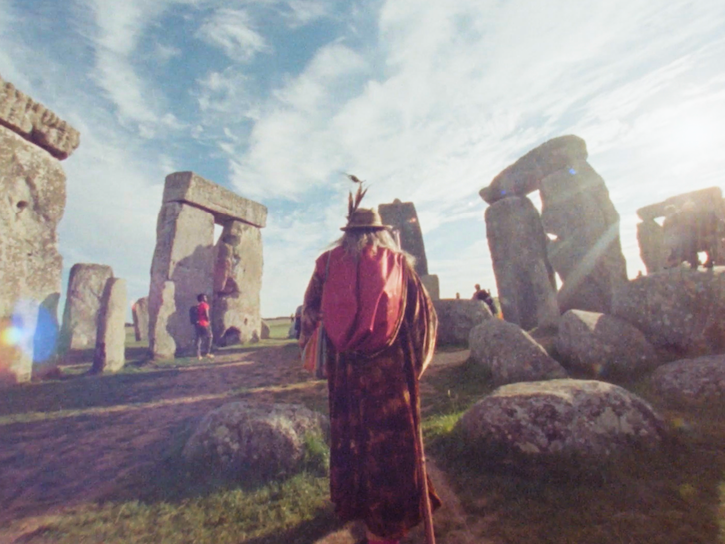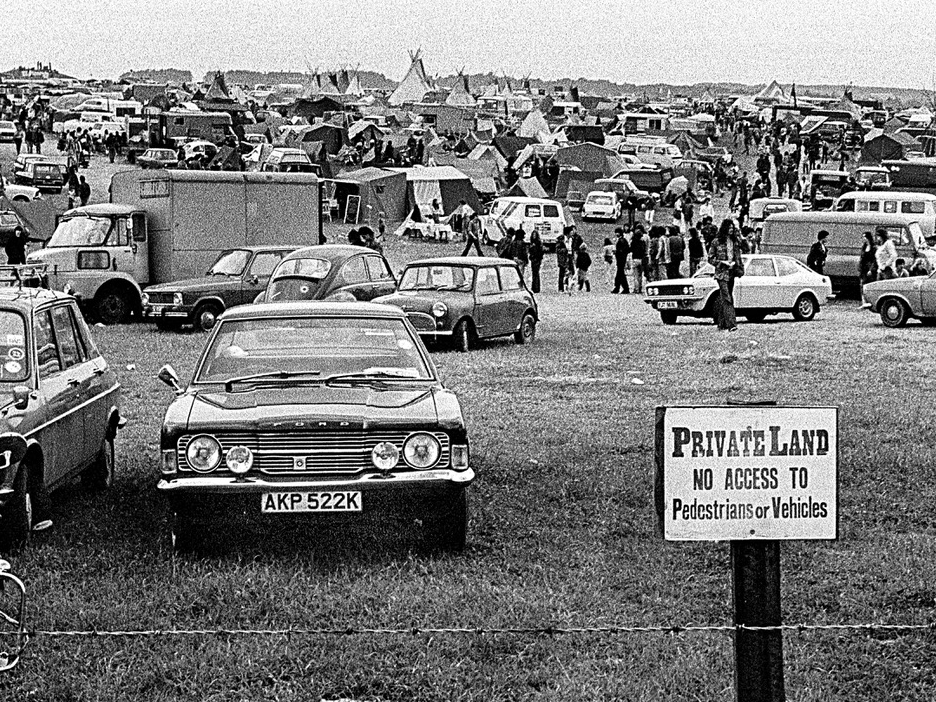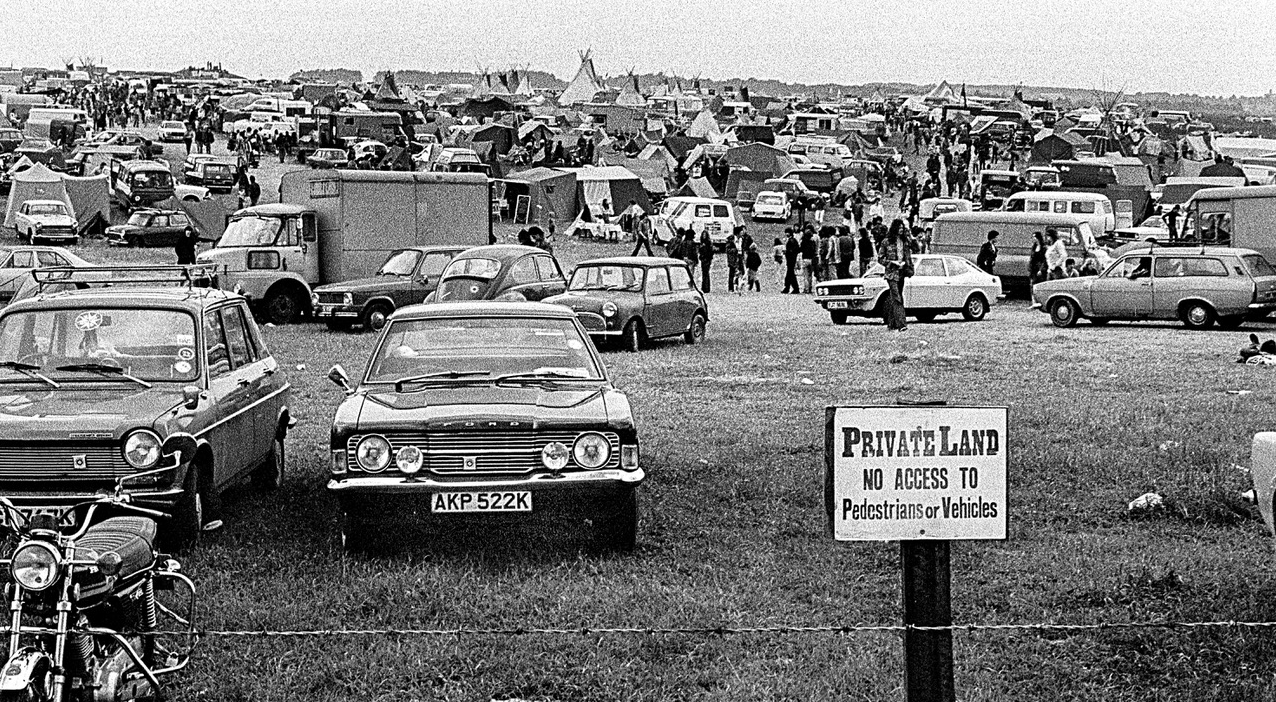
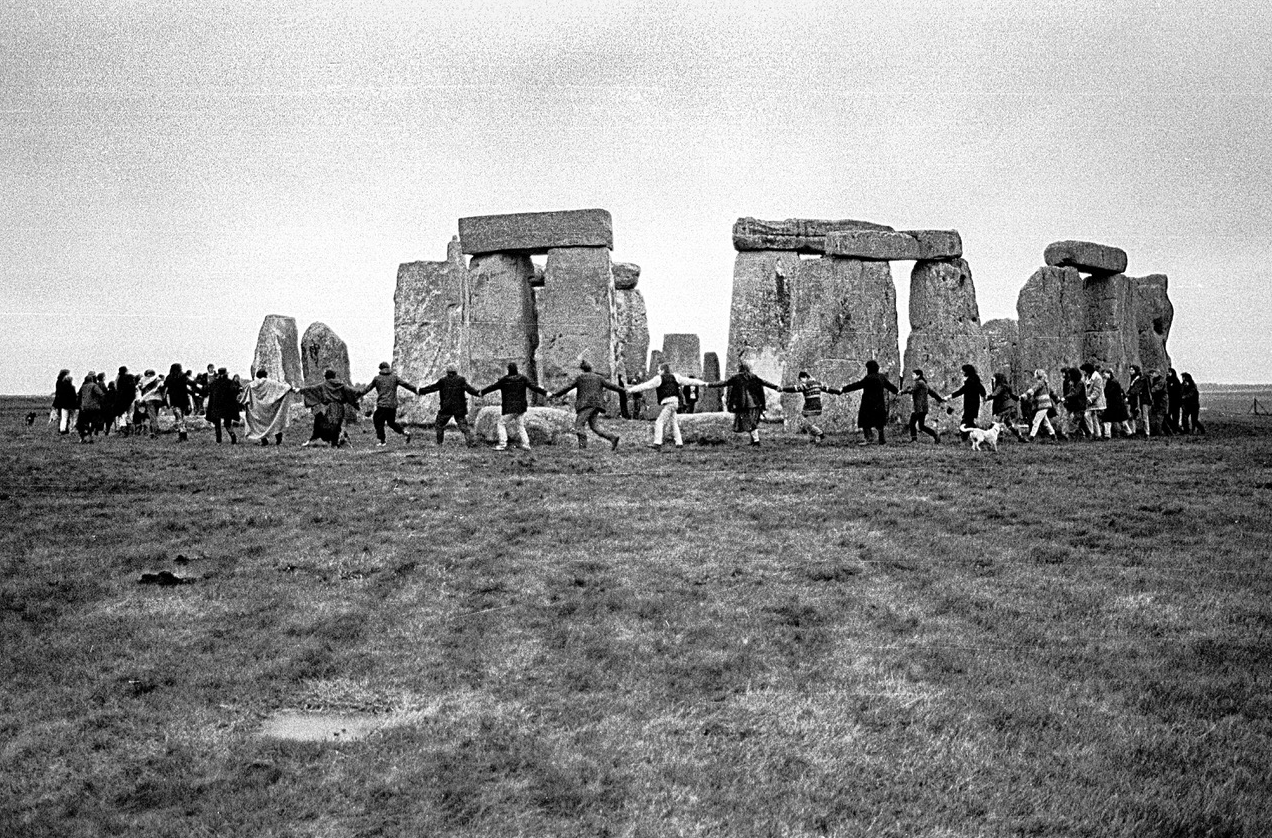
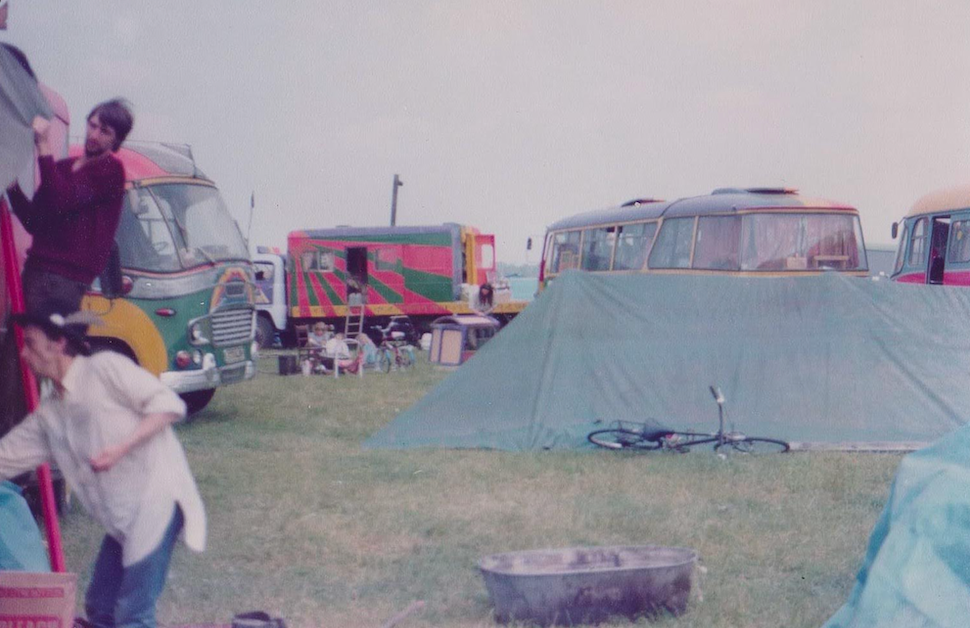
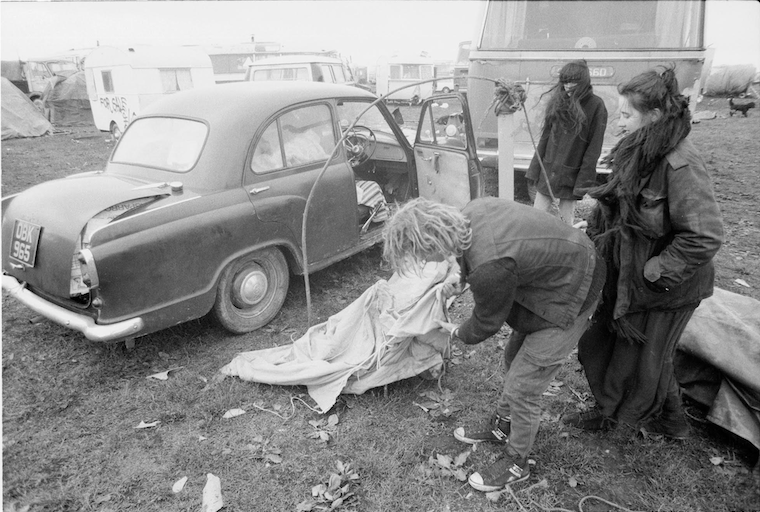
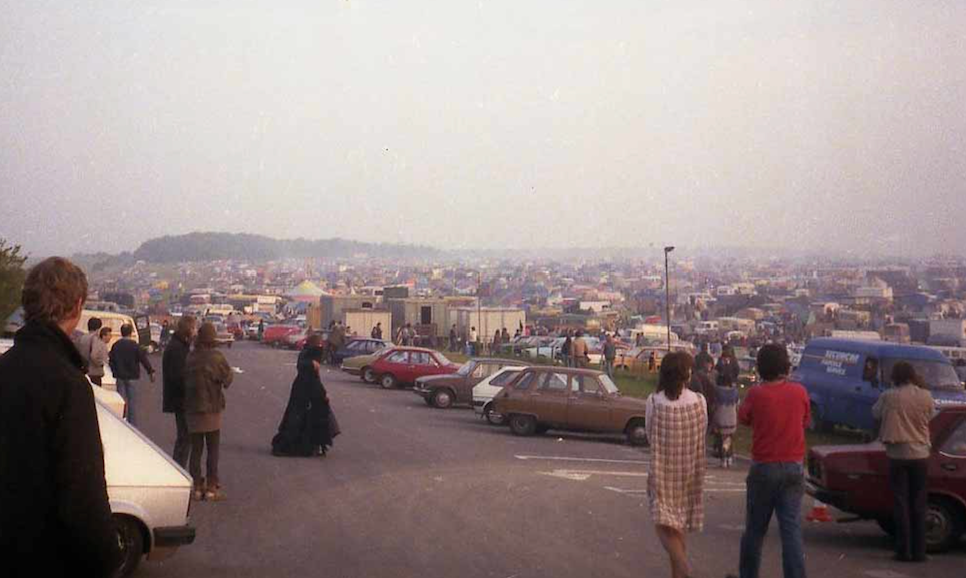
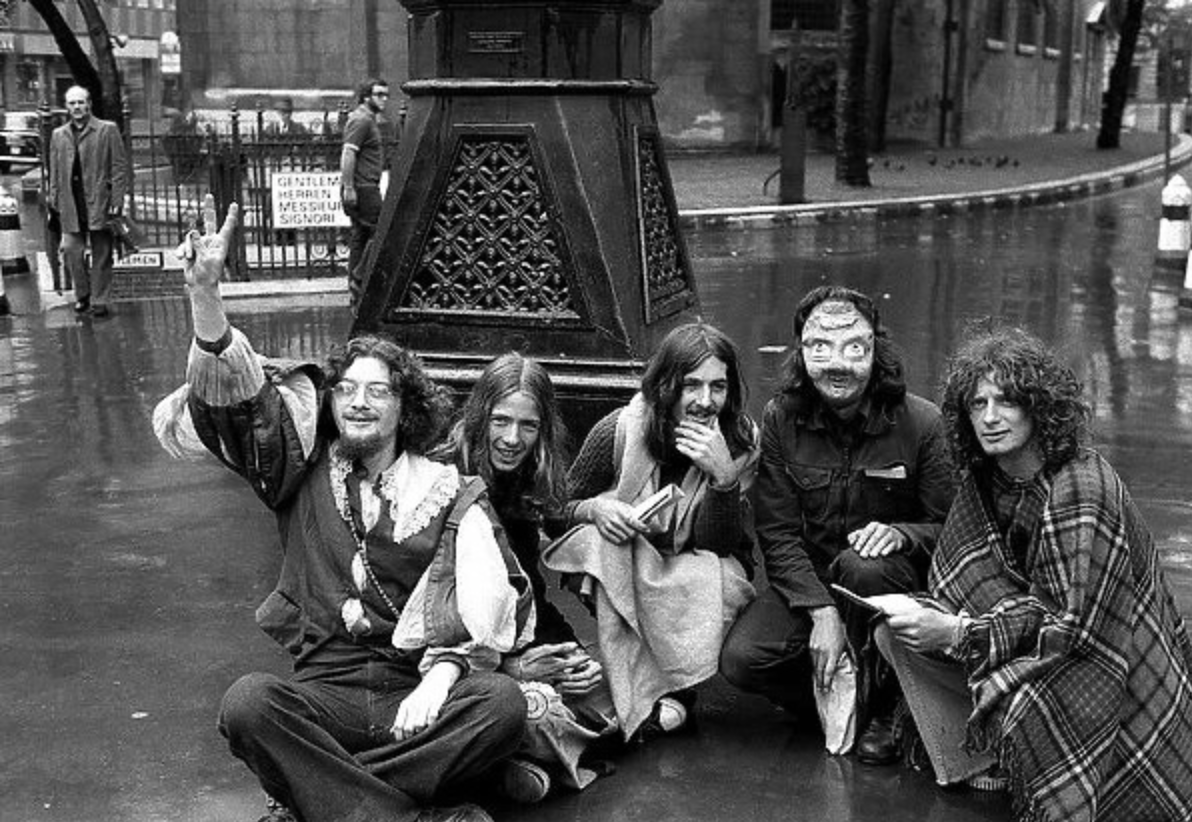
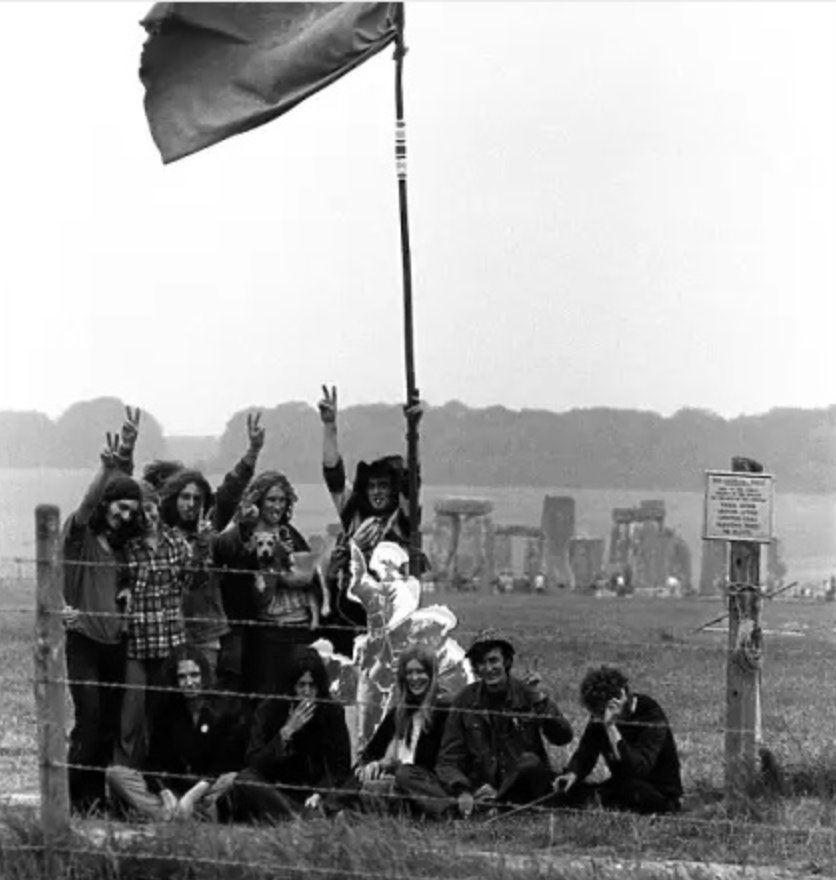
Photos (left to right): Alan Tash Lodge (1,2), Ronnie Neilson (3), Martin Reeves (4,5)
(6,7 unknown - please contact us to credit!)
Written by Anna Mounteney (@pillagerzine) and Giulia Franchi (@franchi_films)
Culture and spirituality have always congregated at the heart of Salisbury plain. The Stonehenge Free Festivals, held at the height of midsummer between the June moons, were not just festivals. Participants sought a deep spirituality, to reconnect with nature, tapping into the primal energy of the land and the cosmos.
People from all walks of life flocked to this sacred site to celebrate the turning of the seasons, to drum, dance and make connections. It was a time of renewal, reflection and communal celebration, away from the confines of mainstream society.
A prominent figure in the UK underground movement, Phillip Russel, a.k.a. Wally Hope believed that the Stones rightly belonged to the people and had been stolen by the government. Following the fall of the Windsor free festival in 1974, he led a gathering of like-minded pilgrims (who each identified as Wally) to Salisbury Plains.
The Wallies became a diverse community of people, all deeply concerned with the state of the world. They held an ambitious vision for the future - one of freedom and connection, anchored on the power of a 5000 year old sacred site.
The gatherings represented a challenge to the status quo; a rejection of consumerism and a vision of society based on cooperation and freedom. The festival’s ethos was born on the doorstep of an ancient spiritual monument sitting at the tail end of a military base. The wider cultural backdrop of 70s and 80s CND campaigns and Cruisewatch from Greenham Common to Aldermaston all laid the groundwork for the birth of the Peace Convoy - a fleet of hundreds of buses which traveled the country in support of the men and women on the front lines of nuclear disarmament. The Convoy joined the Wallies and as the festival grew, so did the government's unease.
Despite their peaceful intentions, the Stonehenge festivals became a target of police scrutiny and harassment. In 1985, the government launched a brutal crackdown on the festival-goers during what would become known as the Battle of the Beanfield.
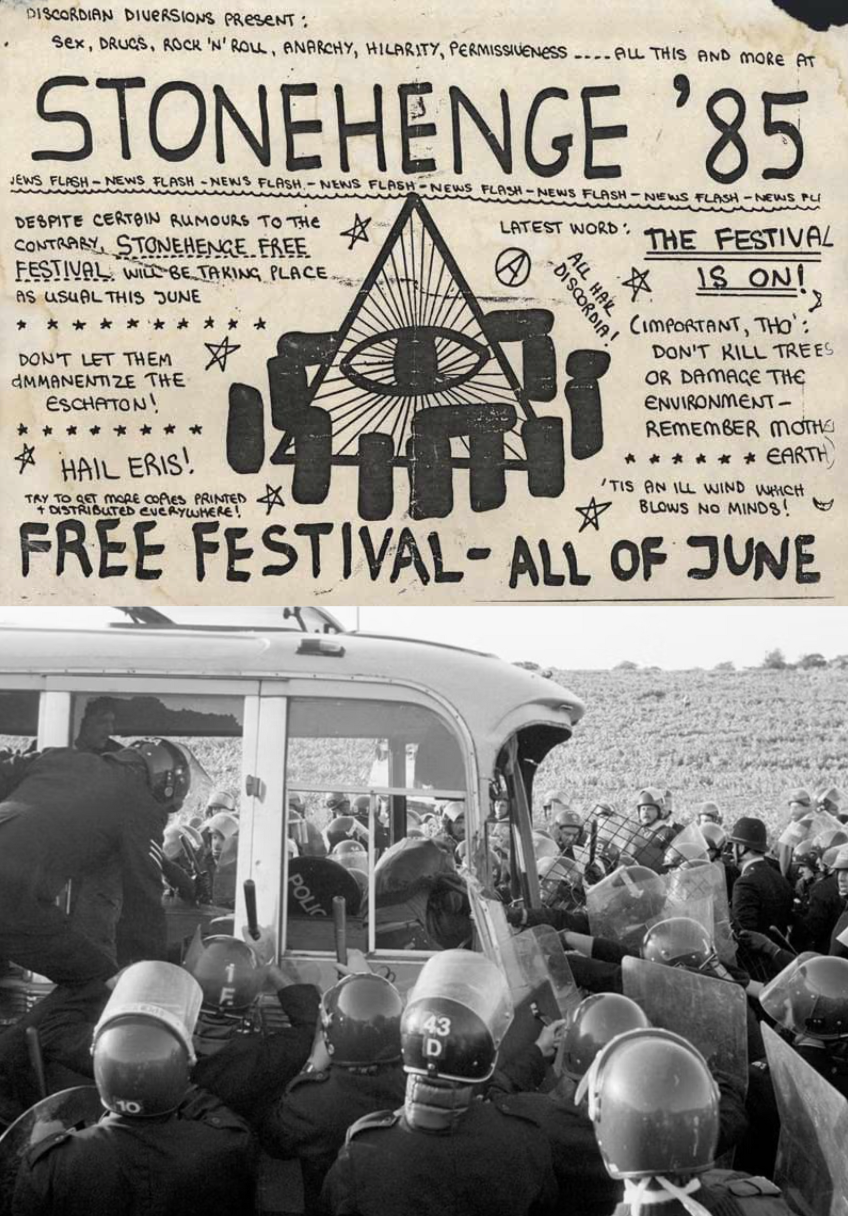
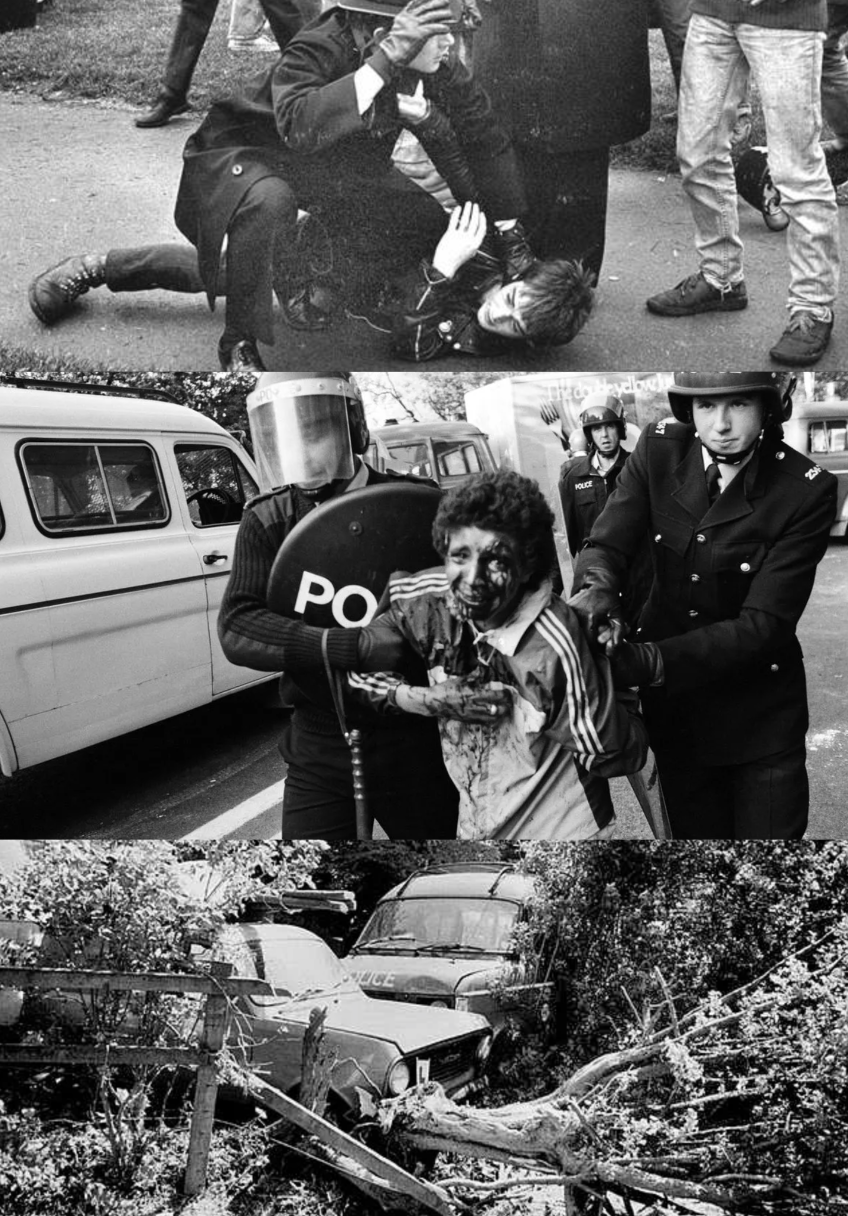
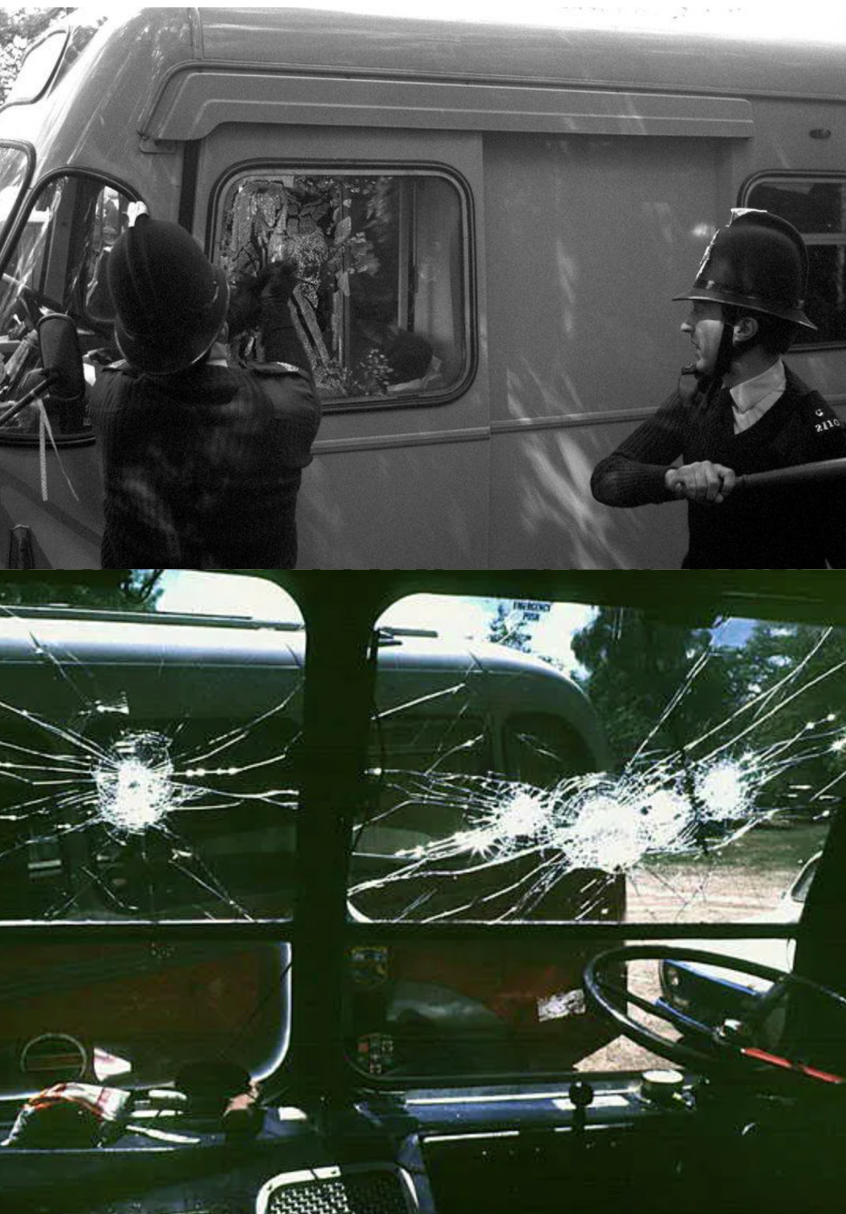
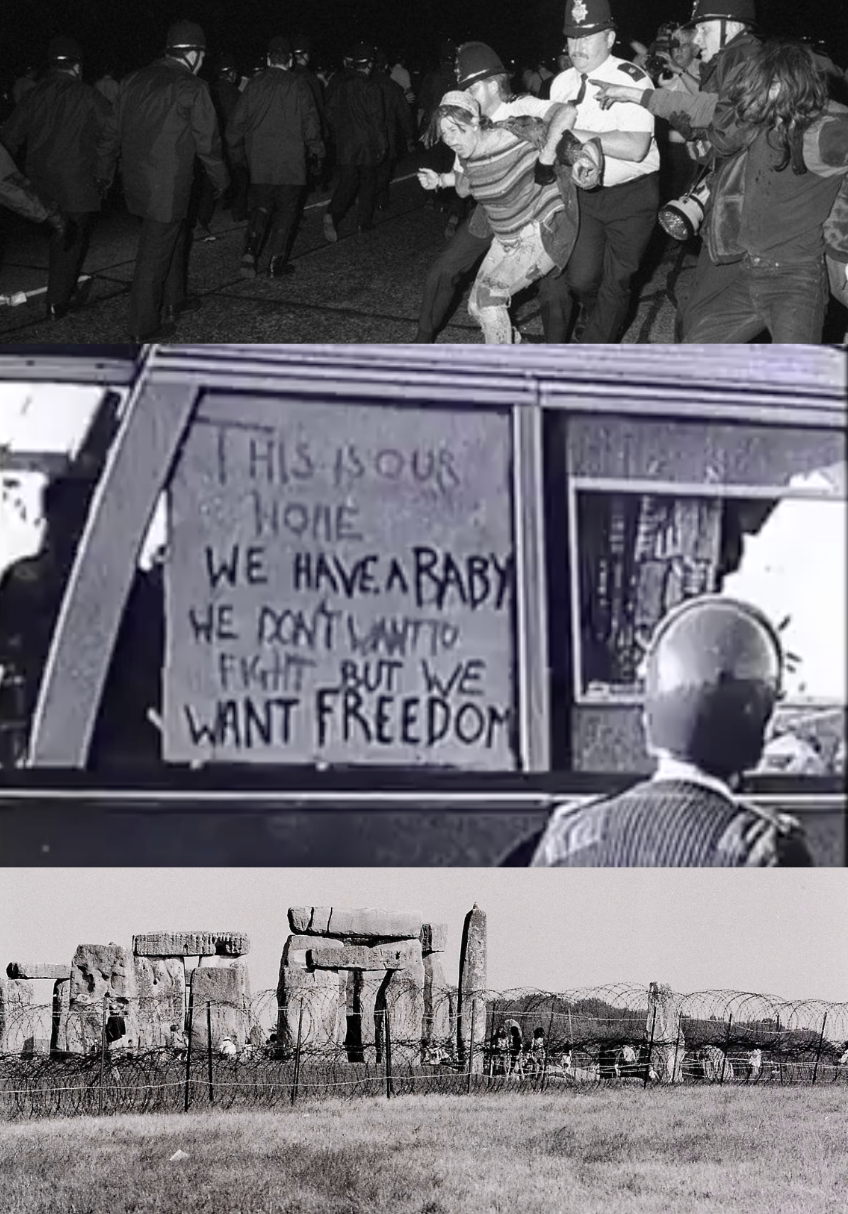
In the early hours of June 1st 1985, as the almost Solstice sun rose over Salisbury plain, police forces descended upon the convoy of vehicles making their way to Stonehenge. What followed was a scene of chaos and violence as officers brutally halted the procession, smashing windows, beating travelers and arresting hundreds.
The Battle of the Beanfield was a watershed moment in the history of the free Stonehenge festivals and the largest mass civil arrest since WWII. It exposed the true nature of the government's attitude towards alternative cultures - one of fear, hostility and a willingness to use force to maintain control.
With the current socio-political landscape echoing Thatcher’s era and another generation facing an impending ecological crisis, The Stones Are Ours offers an alternative way of life for consideration. A future where diverse, inclusive cultures are celebrated and their creative solutions for peaceful, more sustainable ways of living are not marred by the heavy hand of government oppression.
